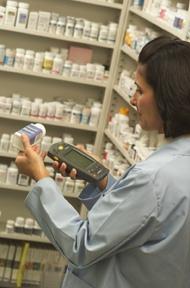Buying drugs onlineThe Internet has changed the way we live, work and shop. The growth of the Internet has made it possible to compare prices and buy products without ever leaving home. But when it comes to buying medicine online, it is important to be very careful. Some websites sell medicine that may not be safe to use and could put your health at risk. First, it's important to carefully consider the source of information and then to discuss the information you find with your health care professional. These questions and answers can help you determine whether the health information you find on the Internet or receive by e-mail from a Web site is likely to be reliable. Some websites that sell medicine can be not state-licensed pharmacies or aren't pharmacies at all; or may give a diagnosis that is not correct and sell medicine that is not right for you or your condition; or won't protect your personal information. Make sure the site requires a prescription and has a pharmacist available for questions.
Some specific ways to obtain the full benefits of medicinesThe benefits of medicines are the helpful effects you get when you use them, such as lowering blood pressure, curing infection or relieving pain. The risks of medicines are the chances that something unwanted or unexpected could happen to you when you use them. Risks could be less serious things, such as an upset stomach, or more serious things, such as liver damage. Before using any medicine--as with many things that you do every day--you should think through the benefits and the risks in order to make the best choice for you. There are several types of risks from medicine use: a) The possibility of a harmful interaction between the medicine and a food, beverage, dietary supplement (including vitamins and herbals), or another medicine. Combinations of any of these products could increase the chance that there may be interactions. b) The chance that the medicine may not work as expected. c) The possibility that the medicine may cause additional problems. For example, every time you get into a car, there are risks---the possibility that unwanted or unexpected things could happen. You could have an accident, causing costly damage to your car, or injury to yourself or a loved one. But there are also benefits to riding in a car: you can travel farther and faster than walking, bring home more groceries from the store, and travel in cold or wet weather in greater comfort. The same is true before using any medicine. Every choice to take a medicine involves thinking through the helpful effects as well as the possible unwanted effects. To lower the risks and obtain the full benefits of medicines you need a)talk with your doctor, pharmacist, or other health care professionals; b)know your medicines--prescription and over-the-counter; c)read the label and follow directions; d)avoid interactions; e)monitor your medicines' effects--and the effects of other products that you use Important things is tell to your doctor about any allergies or sensitivities that you may have. Tell about anything that could affect your ability to take medicines, such as difficulty swallowing or remembering to take them. Before starting any new medicine or dietary supplement (including vitamins or herbal supplements), ask your doctor again if there are possible interactions with what you are currently using. You always have to pay attention to how you are feeling; note any changes. Write down the changes so that you can remember to tell your doctor, pharmacist, or other health care professional.

|